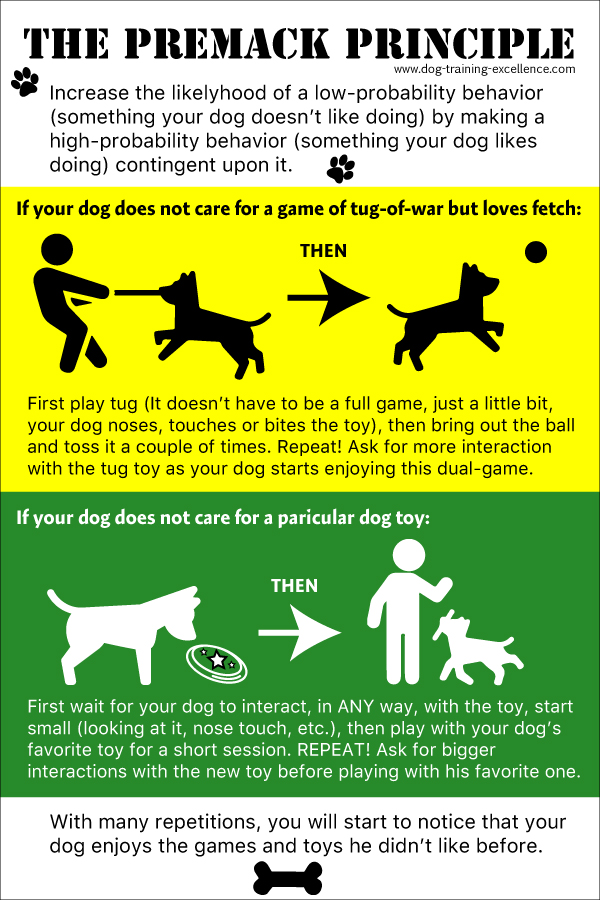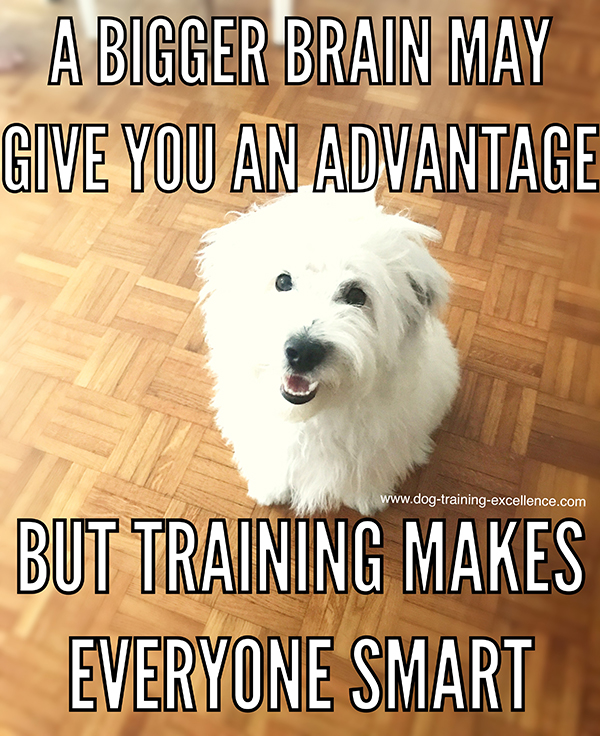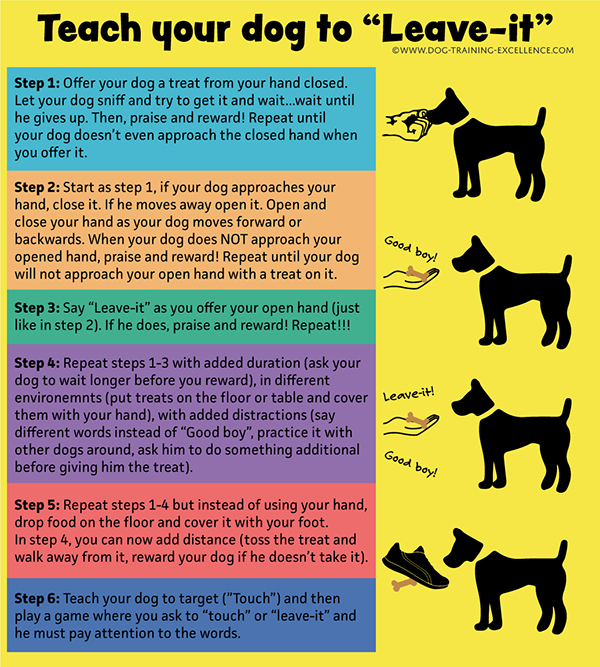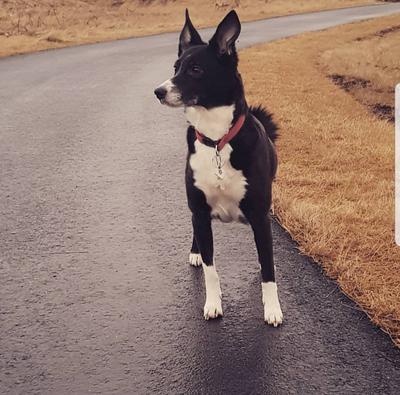| Back to Back Issues Page |
 |
|
The Yes Dog! - Does a bigger brain make your dog smarter? February 28, 2019 |
Dog Training Excellence Newsletter Hello! Dog Trainer Nati here to bring you new dog-related reaserch, tips and stories. In this issue I will tell you about two fabulous pieces of new content for you and one interesting new scientific finding about brain size and intelligence in dogs. Do you have a small dog or a big dog? Keep reading... Best Dog Toys: A Dog Trainer's Hack
We talked about Enrichment on our last newsletter and today I bring you a little bit more. This time we are going to learn how to make any dog toy 💥🎾💥 the best!
It's all about understanding how our dogs (and even ourselves!) learn. The "Premack Principle" can help you teach your dog to love any dog toy, you can even teach him to love doing things he doesn't like. This principle is also known as "The Grandmother Rule": Eat your veggies if you want dessert!
When you ask your dog to do something he doesn't particularly like before getting to do something he does like, slowly an association is formed in your pet's brain until both activities are equally pleasurable.
💡🧠 Insight: This means, our dog's likes and preferences (and our own) can be changed. If your dog doesn't like a toy, you can teach him to love it!
Learn all about the Premack Principle and other ideas to make any dog toy...the best...here...

One toy your dog will love instantly is the Furbo. If your dog spends a lot of time alone, this camera lets you check on him and even throw treats!  The Science of Dog Training: Do bigger brains make smarter dogs?A new study published in the journal Animal Cognition on January 2019 by Daniel J. Horschler and Colleagues investigates the hypothesis that larger brains equal smarter dogs.
This is not a simple questions to ask because intelligence is not one characteristic; it's many abilities grouped into one word. Intelligence encompasses problem-solving, spatial manipulation, working memory, long-term memory, creativity, impulse-control, planning ahead of time, empathy, communication and more. An individual is not “intelligent” or “not intelligent”, individuals differ in “intelligence” because they have different capacities for these cognitive abilities. For example, you may have great empathy but poor long-term memory. Or vice-versa.
In this study, scientists used what is known as "Citizen Science" where people complete surveys and tasks with their dogs at home and upload the data to a website. 7000 dogs,
from 74 different breeds completed 10 cognitive tests with their dogs. Brain size was estimated based on breed standards, so scientists could compare smaller dogs (with smaller size brains) with bigger dogs (with bigger size brains).
Their results show that out of the 10 cognitive tasks only 4 of them showed differences between bigger and smaller dogs. This means that 6 test showed no difference and their conclusion is that brain size does not affect the cognitive abilities tested by these 6 tests (empathy, reasoning, communication). Keep in mind though that these tests are not absolute measures of these cognitive domains. 
Researchers found significant differences in working memory and self-control, both executive functions (processes needed to control our behavior). During the self-control tests, dogs are told by their owner to not eat a treat placed in front of them. They tested two situations, the owner watching the dog and the owner not watching the dog (turning around or covering their eyes). Their results suggest that dogs with bigger brains are better at this task, they take a longer time to “steal” the treat when the owner was not looking. During the working memory tests, the owner placed a treat under one of two cups in full view of the dog. Then the owner waits for 60, 90, 120 and 150 seconds in different trials, after the time elapsed the owner tells the dog to get the treat. If the dog has a good working memory, it will go to the cup where he saw the owner placed the treat. Here, again, dogs with larger brains were better at remembering where the treat was. Similar studies with similar results have been done before in primates. This study suggests that bigger brain size may account for better executive function. However, if you read last month’s newsletter, you know that self-control can improve with training, as we learned from the research study reviewed. So, brain size may give bigger brained dogs an advantage, but training can make even smaller brain sized dogs great at this task. So, don’t give up on your dog and keep on training!
Teach your dog to "Leave-it"Just like the cognitive test we just learned about above...you can actually teach your dog to "leave-it" and control his/her impulse to steal food (or other items). "Leave-it" is another great "impulse control" type exercise because it teaches your dog to control his impulse to steal things. Learn the steps and follow the tips here... 
Your Questions and StoriesThis section is for you to brag about your dog! You can also ask questions (and get answers), tell us your advice or share an interesting anecdote. Your story could be featured in The Yes Dog! And will get its own webpage that you can share with friends and family. Click here to share! This issue's featured question is about Anxiety Barking or Alert? Thunder, like many dogs, will bark when the doorbell rings. He will keep on barking when the person enters the house and will only stop after being able to sniff the person. This may have a big anxiety and fear component that will need to be addressed before anything else. Read about this case Maybe you have tips or words of encouragement... Click here read the full story and to add your comments to this submission.
P.S: Would you like to have your own website? It is easier than you think. I had no knowledge about the web but here I am! You can have yours too... watch the Site Build It! Video Tour.  Copyright © 2012-2019 Natalia Rozas de O'Laughlin. All Rights Reserved. Unauthorized duplication or publication of any materials prohibited. Not intended to substitute for veterinary, legal or other professional advice.
Consult your vet for advice about medical or behavioral conditions & treatment of your pet.
|
| Back to Back Issues Page |
